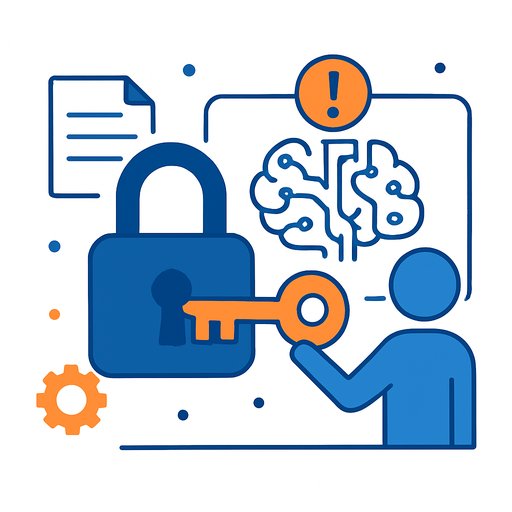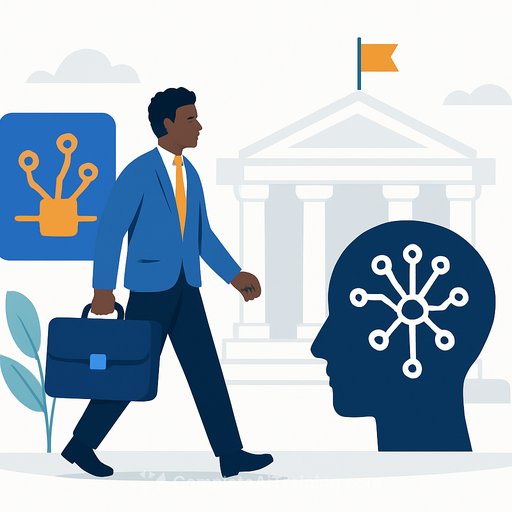Albania Appoints Diella, the First AI "Minister" to Oversee Public Procurement
Albania has introduced Diella, an AI-powered virtual minister tasked with supervising all government tenders. The move is meant to confront long-standing corruption in procurement while signaling a shift in how the state manages high-risk spending.
Prime Minister Edi Rama unveiled Diella at a Socialist Party assembly in Tirana. "Diella is the first member not physically present, but virtually created by artificial intelligence," he said, promising procurement that is "100 percent incorruptible" and fully legible.
What Diella Will Do
Diella is expected to review and manage tenders through an AI-driven platform built with international experts. The system will analyze bids, check compliance against set criteria, and flag risks for human review.
The goal: remove discretion where it invites graft, force traceability, and make every decision visible and auditable.
Legal and Political Reality
While framed as a cabinet reshuffle, the appointment has no constitutional force. Albanian law requires ministers to be citizens over 18 and "mentally competent." Diella is a virtual administrator, not a legal officeholder.
The opposition called the move "ridiculous" and "unconstitutional." Supporters argue the symbolism helps accelerate real reform by putting procurement under constant, data-driven scrutiny.
Track Record So Far
Diella previously worked as a virtual assistant on the government's e-Albania portal, guiding citizens through applications for official documents. Rama says the system has already supported more than a million requests.
Her public avatar appears as a young woman in traditional Albanian dress, giving a familiar face to a back-end AI service most people will interact with online.
Expert Views
Anti-corruption specialists see potential if the build is sound. "If it is programmed correctly, when you put a bid in online you can see clearly and more closely if a company meets the conditions and the criteria," said Dr. Andi Hoxhaj of King's College London.
Analyst Aneida Bajraktari Bicja noted the showmanship but allowed for impact: "The 'AI minister' could be constructive if it develops into real systems that improve transparency and trust."
EU Context
The announcement comes as Albania advances its EU accession goals by 2030. Brussels has repeatedly flagged corruption as a core barrier. Demonstrable progress in procurement integrity will directly affect credibility with the EU.
Background reading: EU public procurement framework and the European Commission's Albania enlargement status.
How an AI-Led Procurement System Should Work
- Rule checks: Automatic validation against eligibility, technical specs, pricing bounds, and documentation requirements.
- Risk scoring: Anomaly detection on bid patterns, related-party risks, price outliers, single-bid tenders, and last-minute changes.
- Transparency by default: Public logs of tender milestones, decisions, and rationales; machine-readable open data releases.
- Human-in-the-loop: Experts review high-risk flags, approve exceptions, and own final accountability.
- Full audit trail: Immutable, time-stamped records for every rule check, model version, and decision.
Governance and Safeguards That Matter
- Legal alignment: Map system rules to procurement law and EU directives; document the mapping.
- Appeals process: Clear pathway for vendors to contest automated decisions and receive timely human review.
- Bias and fairness: Monitor outcomes by sector, region, company size; test for unfair exclusion patterns.
- Model risk management: Version control, drift monitoring, red teaming, and third-party audits.
- Security and privacy: Role-based access, encryption, secure model endpoints, and data minimization.
- Vendor independence: Avoid lock-in; prefer open standards, exportable data, and modular architecture.
KPIs to Track From Day One
- Integrity signals: Share of single-bid tenders, average bidder count, rate of disqualified bids with reasons published.
- Efficiency: Time-to-award, processing time per tender, error rates, re-tender frequency.
- Savings: Price vs. independent estimates; avoided cost from flagged anomalies.
- Trust: Vendor satisfaction, appeal resolution time, public data usage and feedback.
Why It Matters
Procurement is where money, politics, and service delivery meet. Get it wrong and you lose public trust. Get it right and you free up budget, speed up projects, and raise the bar for every ministry.
Rama acknowledges the political theater, but the test is simple: Does the system reduce discretion without reducing accountability? If yes, expect others to follow.
For Government, IT, and Development Teams
- Start with policy and data standards before models; lock down your source-of-truth systems.
- Prototype on one ministry or category (e.g., IT hardware) and publish results.
- Separate "eligibility rules" (deterministic) from "risk scoring" (statistical) for clarity and audits.
- Publish public dashboards and machine-readable datasets to invite scrutiny.
- Train procurement officers and engineers together; run joint tabletop exercises on failures and appeals.
Upskilling Your Team
If you're building AI for procurement or compliance and need structured learning paths, explore role-based programs here: AI courses by job.
Your membership also unlocks:










